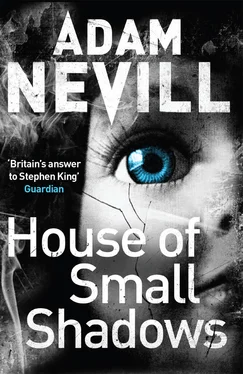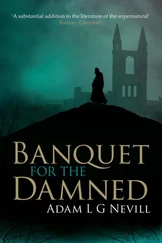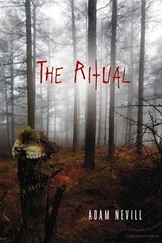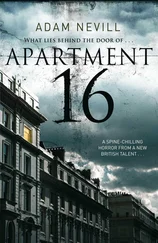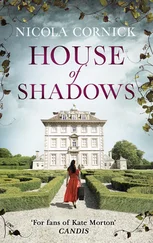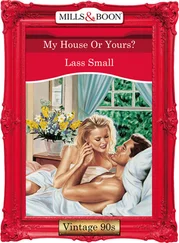But the idea that Mason had built the small beds and dedicated a room to them was the most disturbing thing of all.
‘Puppets have long been messengers. You do know that dear?’ Edith whispered her madness from the chair and Catherine wished she would stop speaking. ‘My uncle told me they were first created as depictions of gods by ancient peoples. And spirits. Maybe even angels. That possessed sacred knowledge. The puppeteer communicated their wishes to the world. He was a priest, a shaman, a wise man. His troupe is ‘other’. It is why there is a special tension whenever the lights come on in a theatre and they appear. We don’t admit it. We tremble in secret. Nothing in all of the performing arts can match such drama. Don’t you agree, dear?’
Edith turned her thin head, her eyes alight with an intensity and enthusiasm Catherine found unpleasant when so near the small beds. ‘What accounts for that? That is the question you would ask if you saw my uncle’s troupe perform. But who is the director? The master or the actors? In the end my poor uncle and mother could never decide.’
I bet they couldn’t, but neither can you.
‘You may ridicule what I tell you, but your doubts are the doubts of a blind and unfeeling world. One that has lost touch, that is unseeing. Sightless before enchantment and mystery. Much of this died before my uncle’s time. But he sought it out in a world determined to destroy its innocence and magic. And he kept it alive. He made the unknown known and the unseen seen. There is no greater skill. And you must relearn the fidelity and openness of a child, or all of this will be lost on you, for ever.’
Catherine’s eyes darted from what looked like the rear of a crudely carven wooden head, mercifully concealed by the pillow that the weight of its head indented, to what appeared to be a shock of unruly black wig that splayed across the white pillowcase like a long-haired animal.
She glanced from this to what looked like the muzzle of a preserved dog’s head on the far side of the room, and felt her gut tighten at the sight of a pale-blue sun bonnet that was water-stained, but spilled luxurious chestnut curls, suggesting the presence of a real girl asleep beneath the patchwork quilt. That figure also seemed uncomfortably familiar.
And what little she saw of the troupe had nothing to do with innocence and magic. It was a testament to a man deranged by war and loss and isolation.
At the foot of each bed stood a pair of tiny boots or slippers. Beneath the closed scarlet curtains was a large leather trunk, studded with rivets at the joints and down each side. She was sure it was the very same case she had seen at the guest house in Green Willow. If the light had been better, and under a closer inspection, she was certain the initials M.H.M would be stencilled below the iron lock.
‘Let me tell you their names.’
Please don’t.
‘Why, here’s Little Mad Moll. Beside her is John Swabber. There’s Leatherhead, Rhymer Warble, Knavish Fiddle and Riffraff Tattle, always the villains of my uncle’s plays. Grizell-Killigrew, Trusty Baiter and Fair Rosamund on the other side. And that’s Nobody on the far end beneath the window. There were once twelve, but poor Jack Pudding and Popelote Tumbler were lost a long time ago and never recovered.’ Edith dropped her voice to a fainter whisper. ‘It was a tragedy for such a group of close friends. I shouldn’t even mention their names in here. The others won’t like it. Now, we mustn’t disturb their rest any longer.’
Catherine swallowed. ‘Quite.’
‘The light. Quick.’
Catherine’s hand was on the light switch before Edith finished speaking.
‘Take me out. We have intruded for long enough.’
Glancing back to make certain no small head turned to watch her go, she couldn’t pull the wheelchair out the room fast enough. But a curious sensation engulfed her as she hauled Edith away. One she had only experienced in moments of panic before an adversary in her professional life, but she now endured the notion that the occupants of the room were listening to her thoughts. That somehow her feelings were amplified within the space of the room. Even more alarming was the idea that she would be sleeping on the very same floor that housed the nursery.
She tried to keep her anxiety out of her voice. ‘The lock. I mean, the door. Key. Shouldn’t it be locked?’
Edith looked pleased. ‘No, dear. This door is never locked. Would you lock a child in a room?’
And here she was again in a room she would not believe existed unless sat inside it.
Ten small wooden chairs had been arranged in two neat rows. Children’s chairs. White chairs with upright animals in human clothes hand-painted upon them, a familiar motif.
Catherine sat on one of two upholstered seats made for adults, placed either side of a projector that belonged in a museum of cinema. And this is where Edith’s mother and uncle must once have sat together, presumably with their inanimate cast gathered around them, to watch recorded performances of what Edith had called the ‘cruelty plays’. Maude had been waiting to start the show after Catherine was done in the nursery.
A white sheet served as a screen, replacing the backcloth of Mason’s intact puppet theatre, a large structure that filled the width of the room, created from detachable parts to allow transportation between the house and rear lawn. The visible larger framework, bridge and proscenium, were constructed of wood and carefully painted in a regal gold and red. A rich purple drapery in the wings allowed for scene changes.
In itself, the theatre was a work of art that deserved display, and was much bigger than the German and Italian marionette theatres Catherine had seen daily while working at the Museum of Childhood in Bethnal Green.
Edith wasn’t going to last for ever, which made her wonder if any provision had been made for the care of this side of M. H. Mason’s work. Heirs had not been mentioned and the theatre troupe was not for sale. So what would become of this final evolution of her uncle’s weird vision?
Before leaving her alone in the ‘theatre’ Edith told her of the BBC’s visit to the Red House after the war. Which produced a great deal of excitement for her uncle, followed by an equal share of disappointment. According to Edith, during M. H. Mason’s visits to a cinema, in Hereford, during the Second World War, he identified a new medium for communicating his obscure work to a wider audience. The rats’ gruesome pleas for world peace had backfired, but he’d subsequently moved on to bigger things. Or so he’d thought at the time. A message his niece and curator didn’t appear wholly cognisant of either. But the film crew from the BBC, who were invited to film his marionette dramas, never returned after the first visit, or broadcast whatever footage they left the Red House with.
Edith may not have pitched it to her on those terms, but Catherine’s interpretation of the facts suggested one visit to the Red House had been enough for the BBC. And she now sympathized with the film crew’s decision as an unpleasant tension mounted inside her while sat before the screen, an apprehension of impending discomfort.
When Edith was wheeled out of the room by Maude, in cynical preparation for what she called ‘a masterpiece’, she’d added, ‘This is the only copy we have. It was deemed too upsetting for children.’ A reminder of which inspired rage in the invalid. ‘My uncle never said it was for children! They assumed, as all fools do, that his theatre was a simple entertainment for infants. They were as imbecilic as the audience they believed it intended for!’
The outburst left Catherine wondering if the master version of the film still existed in the BBC archive. But one copy had survived here and such was the excitement created by the reel’s arrival in ‘1950-something’, a projector had been purchased by Mason when funds were more plentiful. A projector that still worked.
Читать дальше
